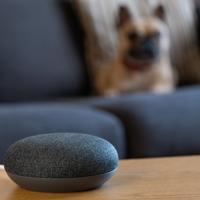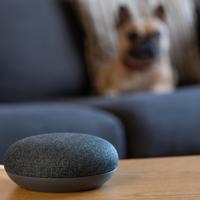In a world where technology seamlessly integrates into our daily lives, voice assistants offer a unique blend of convenience and innovation. Devices like Amazon Alexa, Google Assistant, and Apple's Siri are becoming household staples, promising to simplify tasks with just a few words. However, as with any digital tool, privacy concerns arise. Let's explore these concerns in a friendly but informed manner.
An Overview of Voice Assistants
Voice assistants are AI-powered applications that respond to verbal commands. They can play music, answer questions, control smart home devices, and more. However, to perform these tasks, they need to listen to us. This is where privacy concerns start to take root.
What Are the Risks?
Always Listening
Voice assistants are designed to be attentive, meaning they are constantly "listening" for their wake word. While this is convenient, it raises questions about what they might hear unintentionally. Critics worry about snippets of private conversations being inadvertently recorded.
Data Storage and Utilization
Once your voice command is processed, it’s usually sent to the cloud to be interpreted and responded to. Companies typically store these voice recordings to improve service quality and personalize user experience. However, this data collection raises concerns about how the data is stored, who has access to it, and what measures are in place to protect it. Companies do offer some level of transparency and control over your data, but it's important to be aware of their privacy policies.
Potential for Hacking
Like any internet-connected device, voice assistants are vulnerable to hacking. Unauthorized access to these devices can potentially expose personal information. It is a reminder to maintain strong security practices, such as using robust passwords and keeping firmware updated.
Real-World Examples
In 2019, it came to light that Amazon had teams transcribing and annotating Alexa recordings to improve its AI capabilities. Although the data was used anonymously, it raised alarms about potential misuse of recordings. Similarly, Google and Apple have faced scrutiny for allowing contractors to listen to recordings without sufficient users' knowledge. These instances underline the importance of awareness and transparency in the field of voice assistant technology.
Balancing Convenience and Privacy
Most of us enjoy the convenient features of voice assistants but may feel uneasy about some aspects of privacy. Here are some steps you can take to balance the two:
Review Privacy Settings: Dive into the privacy settings of your device. Most services allow you to delete voice recordings or limit data sharing.
Use Mute Features: Utilize the mute button when the Streaming Devices isn't in use to prevent it from listening.
Educate Yourself: Stay informed about how your voice assistant processes and stores data. Awareness is key to making informed choices.
Secure Your Network: Ensure your Wi-Fi network is secure to protect all connected devices.
Conclusion
Navigating the intersection of smart technology and privacy can seem daunting. Yet, being informed helps us make choices that align with our comfort levels. Voice assistants can undoubtedly enhance our smart living experience, but they require a thoughtful approach to privacy. As we continue to embrace new technologies, let’s remain vigilant and proactive in protecting our personal data.
In our journey with technology, every step begins with knowledge and curiosity. Stay informed, and you can enjoy the benefits of your voice assistant with peace of mind.




